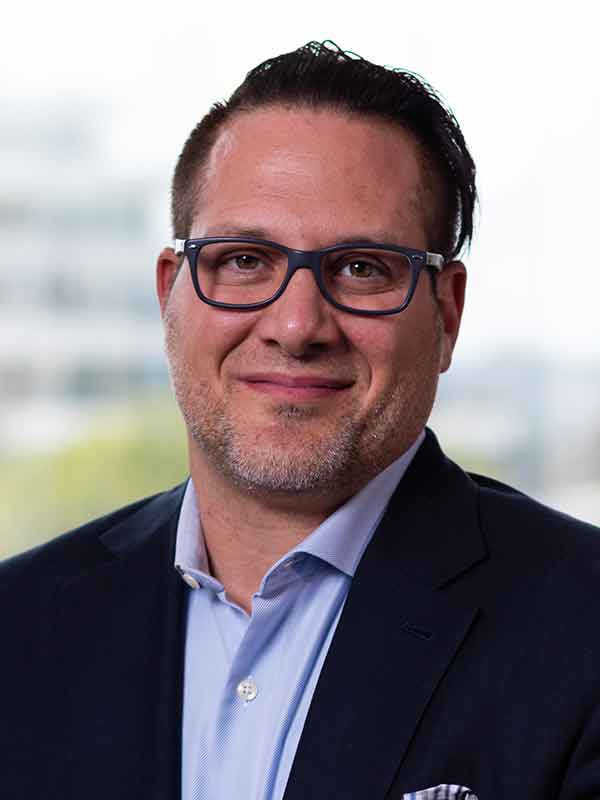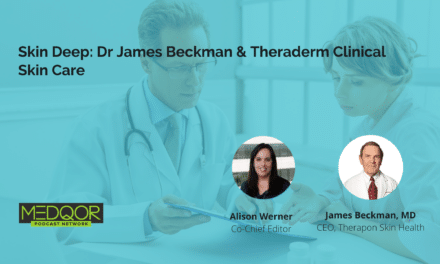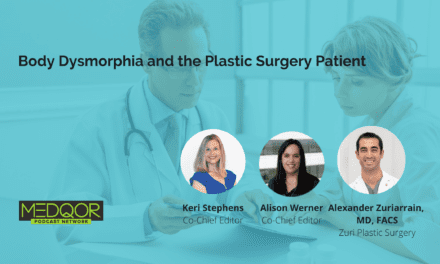In the world of plastic surgery, where aesthetics often take center stage, there exists a noble side of the profession that goes beyond enhancing beauty—the art of reconstructing and transforming the lives of disadvantaged pediatric patients. In a recent episode of the Plastic Surgery Practice Podcast, Sal Pacella, MD, a board-certified plastic surgeon in La Jolla and San Diego, shares his insights and experience with the non-profit Fresh Start Surgical Gifts.
Pacella, who also serves as the division head of plastic surgery at Scripps Hospitals, introduces Fresh Start Surgical Gifts, a San Diego-based national nonprofit. The organization’s mission is to provide reconstructive and plastic surgery to pediatric patients with physical and cosmetic deformities at no cost to the patients or their families. Dennis Nigro, MD, a craniofacial and pediatric plastic surgeon, laid the foundation for this grassroots charity. Initially providing care across the border in Tijuana, Fresh Start’s full potential was realized when it began sponsoring children to come to the U.S. for surgeries and recovery, according to Pacella.
Fresh Start’s volunteer surgical team comprises a range of specialists. Pacella, who has volunteered with the organization since 2009 and has an expertise in ocular plastic surgery, describes how they work together on “surgery weekends” every six to eight weeks. The volunteer group includes plastic surgeons, nurses, surgical techs, and medical assistants. While medical professionals assist in the operating rooms and clinics, non-medical volunteers provide vital support in various roles, including transportation, coordination, and logistics.
In this episode, Pacella highlights cases that stand out during his involvement with Fresh Start. One such case is a young girl from Ukraine born with congenital eyelid deformities. Her surgery restored her eyelids, enabling her to lead a more normal life. Another case involved Beloved, a survivor of a landmine explosion in Africa. Through Fresh Start, Beloved received reconstructive jaw surgery, dental implants, and more. He has since moved to the United States, earned a college degree, and is pursuing U.S. citizenship with a growing family.
For plastic surgeons and medical professionals looking to get involved, Pacella explains that Fresh Start Surgical Gifts welcomes volunteers with open arms. He emphasizes that participation can be seamlessly integrated into one’s practice, with surgery weekends being minimally disruptive to family life.
Hospitals and surgical centers interested in partnering with Fresh Start can explore opportunities for satellite clinics and collaborations with the organization. Fresh Start’s model of sponsorship, surgery, and recovery can potentially be replicated in other cities with supportive pediatric hospitals, says Pacella.
Pacella goes on to explain what sets Fresh Start apart from many philanthropic organizations, specifically its financial model. The organization covers all administrative overhead from a large endowment, ensuring that 100% of donations go directly to patient care. PSP

Podcast Transcript
Alison Werner 0:10
Hello, this is the plastic surgery practice podcast. I’m your host Alison Werner. For this episode we have with us Dr. Sal Pacella, a Board Certified Plastic Surgeon and private practice in the La Jolla and San Diego area. He’s here to talk about Fresh Start surgical gifts, a San Diego based national nonprofit that delivers reconstructive and plastic surgery to disadvantaged pediatric patients with physical and cosmetic deformities at no cost to patients or their families. Dr. Pacella. Thanks for joining me today.
Dr Sal Pacella 0:35
My pleasure. Thanks for having me.
Alison Werner 0:36
So before we dive in to talk about fresh start, can you tell our listeners about you and kind of where you are in your practice? Sure, absolutely.
Dr Sal Pacella 0:43
So I’m originally from New York State and I trained. I did my plastic surgery residency at the University of Michigan. And shortly after that I did a couple of fellowships one in cosmetic breast surgery in Los Angeles and another one in Atlanta. I moved to San Diego in 2008. I’m now the division head of Plastic Surgery at Scripps hospitals, one of the biggest health systems in Southern California and my practice is a large amount of facial surgery, probably about half reconstructive and half cosmetic surgery. So the nice thing about kind of where we are in, in San Diego, it’s very centrally located. We take care of a lot of patients from all over the southwest, Las Vegas, Los Angeles, etc. And we take care of international patients from Mexico as well. So it’s kind of a unique place to be from the standpoint of how we do our philanthropy.
Alison Werner 1:42
Now we’re here to talk about freshstart surgical gifts and as I said, they’re organised a nonprofit that delivers reconstructive and plastic surgeons, disadvantaged pediatric patients. Now recently, they collaborated with University Health San Antonio for its inaugural surgery weekend, which saw world renowned surgeons donate their time and expertise to provide medical care to for children. Can you talk about what fresh start is exactly, and what your role with the organization is?
Dr Sal Pacella 2:10
So I think it’s helpful to understand a little bit about the history of fresh start and how it started. So it’s actually a grassroots charity that started in Encinitas, California, just one of the coastal towns here in San Diego, was started by a cranial facial surgeon, pediatric plastic surgeon named Dr. Dennis Nigro. And he used to go across the border in Tijuana and donate his services in his time for children. And then I think he, he slowly realized that he could bring a lot to to the country by operating on kids in country, but could do a tremendous amount more if he sponsored those children to come to the US and do their surgery and recover here while they have access to world class care. So the organization grew from just a surgery organization that was done in the office operating room to one that’s now done in a major pediatric hospital in the southwest Rady Children’s Hospital and through a large clinic. So we had been operating fresh star for many, many years, just solely out of San Diego. And we quick quickly realized that the model of this organization is really transferable to too many cities. So San Antonio is actually our third location. We have a satellite location in Chicago on the south side of Chicago that treats patients internationally that that may have deformities that are not covered. And we also treat children that are that are domestic children that may be underinsured for things like ear surgery or lip surgery or things that have congenital deformities that may be insurance may not cover. San Antonio is a similar model, obviously with volunteer surgeons that donate their time and the operating rooms donate their time and resources, and it’s really got a global influence across across the world.
Alison Werner 4:07
Well, you’re a member of the volunteer surgical team. Can you talk about what that involvement looks like?
Dr Sal Pacella 4:13
Sure, sure. So in San Diego, there’s probably a core group of six to seven surgeons all have different sub specialties that assist with what we call surgery weekend. So I am a plastic surgeon by training I have a special interest in ocular plastic surgery or eyelid reconstruction. So I tend to do a lot of the surgeries that involve reconstruction in and around the eyelid orbit. I work with a pediatric ophthalmologist Dr. Greg Ostrow who’s one of our directors as well. And we may collaborate with cases for children there is we have a sub specialist who concentrates on ears we have another sub specialist who may concentrate on breast surgery. So among all of our specialists, we’re really able to offer the entire gamut of plastic surgery from a reconstructive standpoint. So getting back to the surgery weekend, so the way the organization is structured, so we have one of the surgery weekends every six to eight weeks or so. And what that entails is, prior to the weekend, several weeks before, we have a meeting called the MediCal program committee meeting where all of our surgeons get together. And we talk about potential prospective patients. So we have a big outreach community program, where patients from all over the world comply, their applications are translated for our group in English, they’ll send in photographs will send in images, they’ll send in any radiology and medical program committee will decide whether or not they’re appropriate candidate for surgery. So from there, if they’re accepted into the program, there’ll be sponsored, to travel to the US there’ll be sponsored with transportation and, and have their surgery here and recovery here. And when it’s safe to head back to their home country or home city, they do so without any risk.
Alison Werner 6:03
What types of cases have you worked on that have really stood out to you personally,
Dr Sal Pacella 6:07
so quite a few throughout the year. So I mean, the the stories and the difficulties of some of these children really kind of, kind of stand out at you. So early on in my career with fresh start, I took care of a young girl from Ukraine who was born with a congenital eyelid deformity where her eyelids did not close all the way. And you can imagine, you know, the ridicule and the ostracization that would occur for somebody like that through their teenage years. So we helped put her eyelids back together to raise lid positions, so that, you know, there’s a level of normality for her to get back into life. And she had her surgery here and went back. One of our star patients in the Fresh Start surgical groups. Fresh Start surgical gifts program is, is a gentleman by the name of Beloved. He’s a gentleman from Africa, who, unfortunately, as a young child, picked up a landmine. And this exploded in his face just a tragic, horrific accident. He was originally cared for in country and then basically transferred to the US for his acute care. Several years after this, he approached our organization when he was about I think, 13 years old, to undergo the the end stages of reconstructive jaw surgery, dental implants, etc. So he’s, he’s a gentleman I’ve personally operated on probably about 10 times throughout the years. And he’s a shining example of, of just what hard work and, and dedication will do. So he has since moved to the United States, he has gotten a college degree, he’s actively pursuing his citizenship to the United States. And he married a young gal and has a baby on the way. So really fantastic story.
Alison Werner 7:57
For those who are interested in getting involved. What are you guys looking for in terms of volunteers? And what does it take to get started on getting involved?
Dr Sal Pacella 8:06
Great question. And I would say that our volunteer group is not limited to just doctors, nurses, and medical personnel. So if you’re a medical personnel, we’re always in need of volunteer surgeons, volunteer nurses to not only work the operating rooms, but work the clinics, if you’re a surgical tech or medical assistant, there’s a huge need for that as well to get the rooms prepped and the instruments handled, etc. But if you’re a non medical personnel, we have just as unique of a need. We’re always in need of clerical support for patients to coordinate their trips back and forth. We’re always in need of folks to support the surgery weekend, our volunteers, you know, we’d like to feed them and treat them well. So they come back and stay with the organization. So we’re always in need of folks kind of running point and transferring people back and forth and bringing food etc. So really, it’s just a matter of applying to the organization for for volunteerism.
Alison Werner 9:05
And then if it’s a plastic surgeon, what would you say as a as a peer? How does the time commitment here and just the resource commitment look for you.
Dr Sal Pacella 9:15
So you know, the thing I love about Fresh Start is it, it is an opportunity as a surgeon, to work with colleagues in the community that I may not ever see in my private practice. So for example, we approach this as a very team oriented case. So we may have two or three surgeons operating at the time, and we do the surgeries on a weekend. So it’s very non disruptive to your family life if you have young kids, etc. Just a few hours on a Saturday or whenever the case can be completed. We’ll then see the patients again on Sunday morning and perhaps see some patients in the office on Sunday morning for an evaluation. You know many times when we do mission work that’s out of country, you know, you’re you’re traveling a large distance and being out of town for a week. And that can be, you know, disruptive to your practice and disruptive to your family life. So this is a unique way to really give back to the community, the global community, and really haven’t integrate into your life. The final thing I’ll say about that is you know, we we live in a world in medicine that is overrun by technology, and medical records and insurance companies, and there’s frustrations with billing and, and the entirety of medicine. The wonderful thing about Fresh Start is all that goes on the wayside. And we are uniquely and continuously reminded that the most important aspects of what we do as surgeons is the doctor patient relationship. And Fresh Start is a purity of the doctor patient relationship. And that’s what I really admire about working with the organization.
Alison Werner 10:58
We talked about doctors getting involved, but what if a hospital or surgical center is interested in bringing partnering with fresh start?
Dr Sal Pacella 11:07
So right now, you know, our our mission is to really work with the the high end, Rady Children’s Hospital, and the beauty of that is where patients are exposed to pediatric specialists, pediatric anesthesiologist, et cetera. Now years ago, we used to do our surgeries out of a out of an office surgery center. And although that was that was great for what we did at the time, we sort of outgrew the outpatient setting, and now we have a very unique relationship with Rady Children’s Hospital. And it works fairly well. I think as I as I look to the future fresh start, there will be certainly opportunities for partnerships and new satellite clinics. And it’s just a matter of getting involved with whatever pediatric hospitals in whatever host city we we, we are operating in,
Alison Werner 11:57
what would your final message be to any plastic surgeons, any of your peers who are listening to this, who are you know, thinking about getting involved or looking for a way to give back.
Dr Sal Pacella 12:05
So I would say that, you know, we’re always in need of a dedicated surgeon or a dedicated individual. And, you know, this is an opportunity to, to really get back to that doctor patient relationship, as I described. And that’s clearly important. But another point I’d like to make with the organization is very unique to charities, in general, many times any sort of philanthropy organization or charity. There are certain operating expenses that have to be covered by the donations fresh started and is unique in the fact that we had some very, very generous donors early on in the, in the infancy of the organization, we have a very large endowment, and the interest on that endowment is able to pay for all our administrative overhead. So what that means is that when you donate $1, for freshstart, surgical gifts, 100% of that dollar goes to patient care. And that’s it’s very unique from what I’ve seen with philanthropy organizations in the past.
Alison Werner 13:07
So what’s ahead for you this year with fresh start?
Dr Sal Pacella 13:10
So quite a bit, actually, we we have quite a few cases on the agenda here. I’m in the midst of working with my colleague, Asa Morton, who’s a them logic plastic surgeon. We’re rebuilding an eye socket for a gentleman who’s out of Colombia young, 14 year old guy named Juan has been back and forth a couple times for our surgeries. I’m also going to be caring for in a few short weeks young girl from Tijuana, she’s 16 she’s had extensive body surface area wounds throughout her chest and abdomen and we’re going to hopefully do some some expansion of her regular skin in order to cut out some of that burned skin and replace it so so a lot of sort of, you know, extensive surgery and multiple surgeries on the on the agenda in the next few months.
Alison Werner 14:02
Well, I can tell that you’re really passionate about this and really excited about the work you have ahead. So thank you so much for taking the time to talk to me about freshstart surgical gifts and with our listeners.
Dr Sal Pacella 14:10
My pleasure, thank you for having us.
Keri Stephens 14:12
As always, thank you for joining us and be sure to subscribe to the plastic surgery practice podcast to keep up with the latest episodes. And also please check out plastic surgery practice.com for the latest industry news. Until next time, take care








